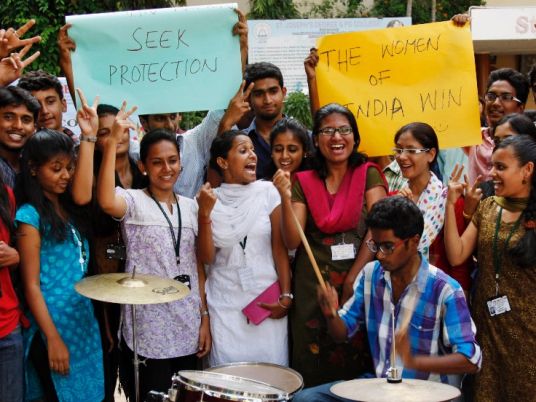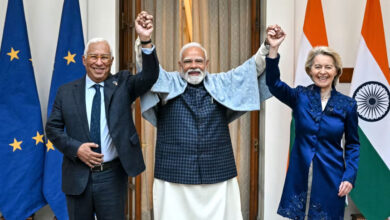
An Indian court sentenced four men to death Friday for the rape and murder of a 23-year-old woman in New Delhi in 2012, an attack that appalled the South Asian nation.
Announcing the sentence, Judge Yogesh Khanna said the crime "shocked the collective conscience" of India and fell into the "rarest of rare category" that deserves capital punishment.
"In these times when crimes against women are on the rise, the court cannot turn a blind eye to this gruesome act," he said.
One of the convicted men, Vinay Sharma, broke down in tears and cried loudly as the judge spoke.
Prosecutors had asked for the death penalty for the men, citing the "extreme brutality" of the attack, which took place on a moving bus in December. They had also argued the court needed to send a message to Indian society with its judgment.
Anger about the deadly assault has had a widespread impact in India. It set off demonstrations, started a debate about women's treatment in Indian society and prompted the introduction of tougher punishments for sexual abuse.
Members of the Karnataka State Youth Congress, wearing masks of the four convicted rapists, attended a demonstration after the sentencing. People lit candles in Gauhati, India, to mark the verdict. Indian students celebrated the death sentence verdict of the four men who raped and murdered the woman on a bus in New Delhi last year.
Convicted Indian Rapists Plan to Appeal
"We are very happy. Justice has been delivered," said the father of the victim, whose name was withheld under Indian law.
Calls for the men to be executed had come from the victim's family members, high-profile politicians and many other Indians.
The announcement of the sentence was met with cheering from hundreds of protesters outside the court. Posters and banners held by those in the crowd read "hang the rapists" and "a woman's life is the foundation, do not defile it."
Indian Home Minister Sushilkumar Shinde said his initial reaction was that "justice was given to that girl and family." Defense attorneys had urged the judge to show leniency and sentence the men to life in prison, saying the death penalty should be the exception, not the rule.
As the judge announced the death sentence, defense lawyer A.P. Singh shouted, "This is not the victory of truth. But it is the defeat of justice."
A Shocking Attack
The brutality of the New Delhi attack, as described by police and prosecutors, helped stir the strong emotions surrounding the case.
On the evening of December 16, the victim, a 23-year-old physiotherapy student, had gone to see the movie "The Life of Pi" with a male friend at a New Delhi mall.
During their journey home, they boarded a bus at a major intersection in upmarket South Delhi.
The driver and at least five other men on the bus were drunk and looking for a "joy ride," police said. The men, from a poverty-ridden slum on the outskirts of Delhi, dragged the woman to the back of the bus and beat up her male friend.
Police said the men took turns raping the woman, using an iron rod to violate her as the bus drove around the city for almost an hour. When they had finished, they dumped the two victims by the side of the road.
The woman's injuries were so severe that some internal organs had to be removed. She died two weeks later at a hospital in Singapore.
After a trial that lasted about seven months, the Delhi court finally convicted four of the men — ages 19 to 28 — to the death sentence for murder, rape and kidnapping.




